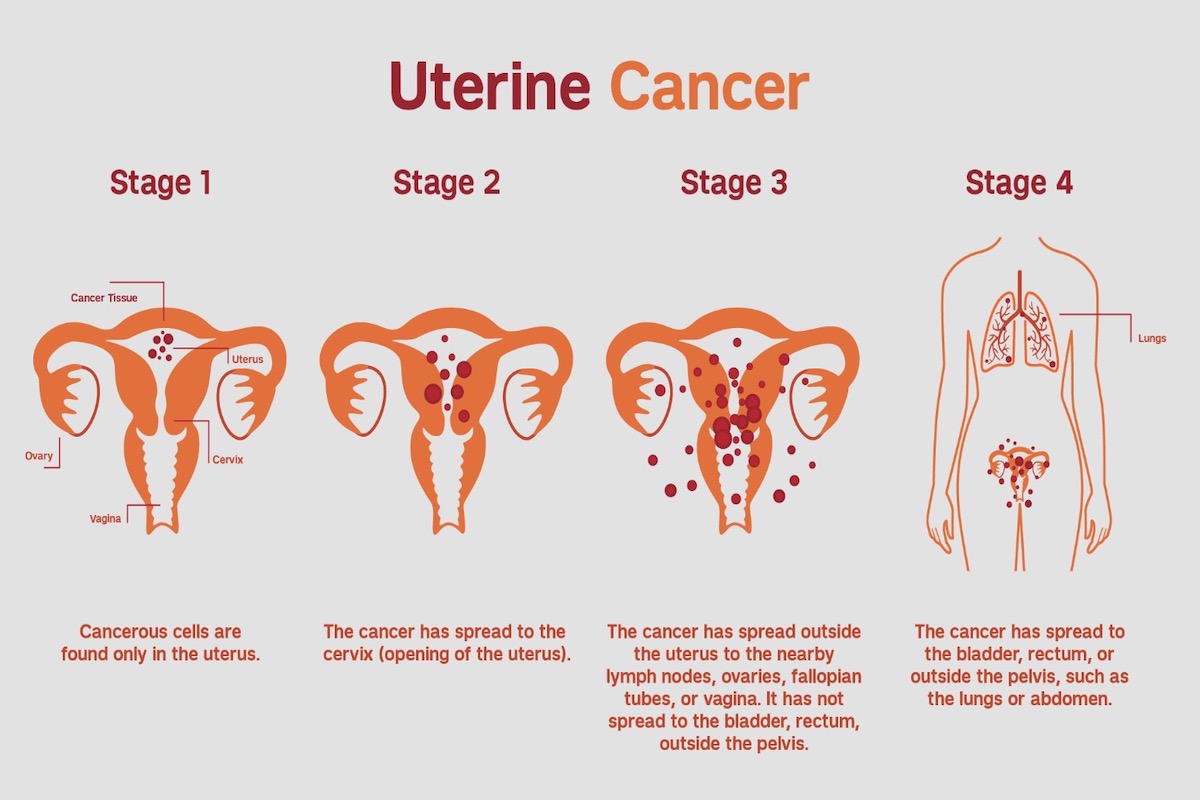When you suspect you have undiagnosed uterine cancer it’s important to visit your professional healthcare provider as soon as possible. Your healthcare provider will examine you and your symptoms and if necessary refer you to the right medical specialist. The possible tests the healthcare provider will perform are lab tests, and imaging tests, like CT & MRI scans and/or transvaginal ultrasounds, and biopsies.

Endometrial Cancer Diagnosis
Once the diagnosis of uterine cancer is made, your healthcare provider will also tell you which type and stage of cancer you have. Types are:
- Endometrial cancer type 1: less aggressive and usually doesn’t spread to other tissues quickly.
- Endometrial cancer type 2: aggressive and more likely to spread to other body tissues.
The staging of your endometrial cancer depends on how severe the cancer is. There are 4 stages:
- Stage I: cancer hasn’t spread outside the uterus
- Stage II: cancer has spread to the cervix
- Stage III: cancer has spread to the vagina, ovaries, and nearest lymph nodes
- Stage IV: cancer has metastasized to body tissue far away from the uterus, like the lungs, and breast brain.
The first stages are also called localized, and the 5-year survival rate is approx. 96%. The middle stage is called regional and has a 5-year survival rate of approx. 70%. The last stages are called distant and the 5-year survival rate is 20%.
Treatment Options for Uterine Cancer
Fortunately, there are several treatment options for uterine cancer. Most patients need surgery, in which the uterus is removed. This is called a hysterectomy. Surrounding tissues may also need to be removed, but this depends on how badly the cancer has already spread. Other nearby tissues that need to be removed are the fallopian tubes and close-by lymph nodes. Other treatment options your professional healthcare provider will discuss are:
- Chemotherapy
- Radiation therapy
- Hormone therapy
- Immunotherapy
- Target therapy
There are so many ways to treat cancer these days, the above-mentioned options are just a few examples. Sometimes they are combined, but it can also happen that these treatments do not help (anymore), so other options should be considered. That’s why it’s essential to do your own extensive online research and stay up to date about new treatments. Have you already been diagnosed with endometrial cancer but aren’t satisfied with your treatment plan? Getting a second opinion in another hospital or oncology center is always smart. Continue your search for more information about cancer & its treatment options here:

